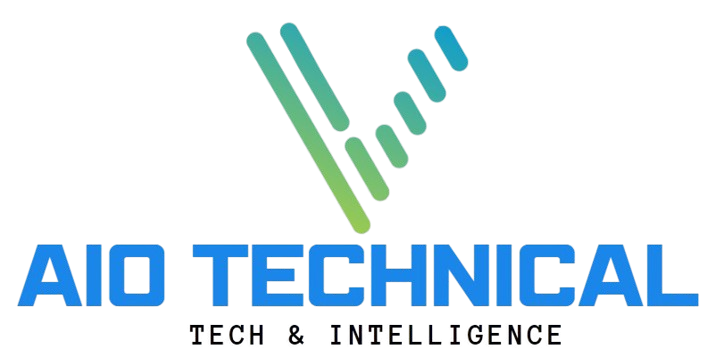The Ethics of AI : Navigating Innovation with Responsibility

Artificial Intelligence (AI) is reshaping the landscape of technology and society, offering unprecedented opportunities while simultaneously raising ethical concerns. As we delve into the ethics of AI, it’s crucial to explore how we can harness its benefits responsibly, ensuring that innovation does not come at the cost of ethical standards.
Understanding the Ethical Landscape of AI
The rapid advancement of AI technologies presents complex ethical dilemmas. From autonomous systems to data privacy, these challenges necessitate a thoughtful approach. The ethics of AI encompasses a range of issues, including bias, accountability, and the societal impacts of automation.
The Importance of Ethical Considerations in AI Development
As AI systems become more integrated into daily life, their design and implementation must reflect ethical principles. This is not only a matter of regulatory compliance but also of societal trust. The ethics of AI should prioritize human well-being and dignity, ensuring that technology serves to enhance rather than hinder our quality of life.
Bias in AI: A Critical Challenge
One of the most pressing issues within the ethics of AI is bias. AI systems often rely on historical data, which can inadvertently embed existing prejudices. For instance, facial recognition technologies have shown higher error rates among marginalized groups, raising serious ethical questions about their deployment in sensitive areas like law enforcement.
To mitigate bias, developers must engage in rigorous data auditing and employ diverse teams during the design phase. Ensuring the ethics of AI involves actively working to prevent discrimination and promoting fairness in outcomes.
Privacy Concerns in the Age of AI
With the rise of data-driven AI applications, privacy concerns have escalated. AI systems often require vast amounts of personal data, which raises ethical questions about consent and the potential for misuse. The ethics of AI must include robust frameworks for data protection and transparent data usage policies.
Implementing strong privacy safeguards is essential. Companies should adopt principles of data minimization, collecting only what is necessary for functionality while informing users about how their data will be used.
The Impact of AI on Employment: An Ethical Perspective
Automation driven by AI presents another significant ethical challenge. While AI has the potential to increase productivity, it also poses a threat to jobs in various sectors. The ethics of AI calls for a balanced approach that considers both economic benefits and the social implications of widespread job displacement.
Preparing for Workforce Transition
To address these concerns, industries and governments must invest in workforce development. Providing training programs and upskilling opportunities can help workers transition into new roles that emerge as a result of AI advancements. The ethics of AI includes ensuring that the workforce is prepared for changes, mitigating the adverse effects of automation.
Establishing Accountability in AI Development
Accountability is a cornerstone of the ethics of AI. As AI systems become more autonomous, determining who is responsible for their actions becomes increasingly complex. Clear accountability frameworks are necessary to ensure that developers, organizations, and users understand their responsibilities.
Implementing Transparent Practices
Transparency in AI decision-making processes is vital. Users should have the ability to understand how decisions are made, especially in high-stakes situations like healthcare or criminal justice. The ethics of AI advocates for explainable AI, where algorithms can be understood and scrutinized by stakeholders.
Legal Aspects of AI Ethics
The legal landscape surrounding AI is evolving, and it is imperative that ethical considerations are integrated into regulatory frameworks. Laws and regulations must adapt to address the unique challenges posed by AI technologies.
Creating Robust Regulatory Frameworks
Policymakers should collaborate with technologists to establish regulations that uphold the ethics of AI. This includes guidelines for data usage, algorithmic accountability, and frameworks for addressing bias. By creating robust legal structures, we can ensure that AI development aligns with societal values.
The Role of Industry Leaders in Promoting Ethical AI
Industry leaders have a significant role to play in fostering the ethics of AI. By committing to ethical practices and investing in responsible AI development, companies can lead the way in ensuring that AI technologies benefit society as a whole.
Promoting Best Practices in AI Development
Organizations should adopt ethical guidelines that prioritize human rights and social good. This includes conducting regular audits of AI systems for bias and ensuring diversity in development teams. By promoting best practices, the ethics of AI can be integrated into the core values of organizations.
Global Perspectives on AI Ethics
AI is a global phenomenon, and its ethical implications are not confined to any single region. International cooperation is crucial for addressing the ethics of AI on a global scale.
Collaborating for Global Standards
Creating global standards for AI development can help ensure that ethical considerations are universally applied. Countries should work together to share best practices, regulate cross-border data flows, and establish norms for the ethical use of AI technologies.
The Future of Ethical AI: A Collective Responsibility
Looking ahead, the ethics of AI will continue to evolve. As technology advances, new ethical challenges will emerge, requiring ongoing dialogue and collaboration among stakeholders.
Fostering a Culture of Ethical Responsibility
Building a culture of ethical responsibility within the AI community is essential. This involves not only adhering to ethical principles but also engaging in discussions about the societal impacts of AI. The ethics of AI is a collective responsibility that necessitates participation from technologists, ethicists, policymakers, and the public.
Conclusion: Embracing the Ethics of AI for a Better Future
As we navigate the complexities of AI, embracing the ethics of AI is essential for ensuring that technological innovation aligns with our societal values. By prioritizing fairness, accountability, and transparency, we can harness the power of AI to create a positive impact.
This review is prepared by the V Aiotechnical.com editorial team, reflecting our commitment to fostering responsible and ethical AI practices. Through collaboration and adherence to ethical principles, we can build a future where AI serves the greater good.





